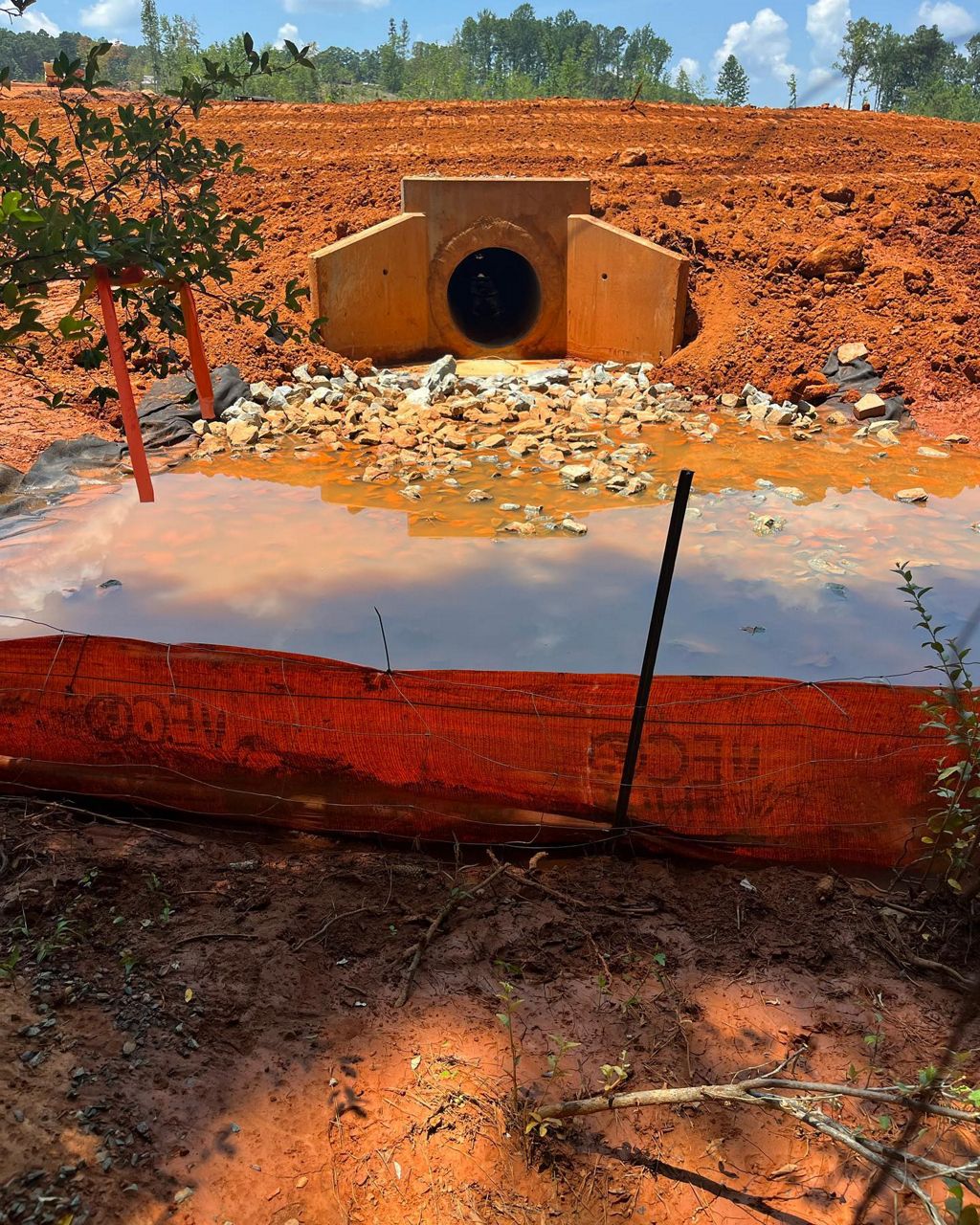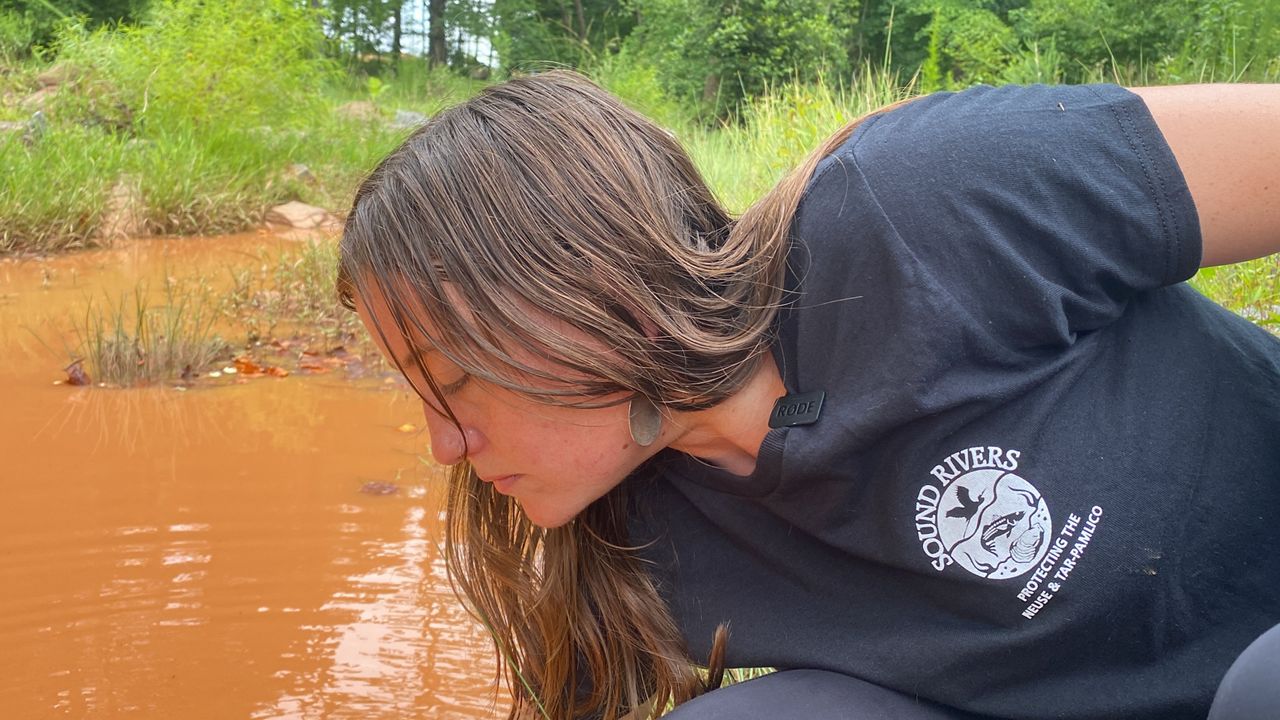CHATHAM COUNTY, N.C. — There are concerns about pollution in the Haw River in Chatham County, and one riverkeeper says a new development in Pittsboro is a big reason why. On Tuesday, the county confirmed that it’s now investigating the problem.
“Very muddy right now. The water is this brown-orange kind of chocolate milk color, and rivers shouldn't look like that,” Emily Sutton, the Haw Riverkeeper with the Haw River Assembly, said.
The Haw River feeds into Jordan Lake, which is a key source for drinking water.
On July 4, a community member just downstream from the South Bynum River Access reached out to the Haw River Assembly, concerned about pollution in the stream near her house close to the Chatham Park development.
“Our team went out to her house and walked up the creek with waders, traipsing through this tiny tributary until we found the source,” Sutton said.
Sutton confirmed her suspicions and documented what she saw on her phone.
“When our rivers run bright orange, most of the time the culprit is development,” Sutton said. “There is so much sediment in this river. And I would suspect that a lot of it is coming from Alamance County. Now things will be much worse as Chatham County continues to develop Chatham Park.”

Chatham County has a 28-page long “Soil Erosion and Sedimentation Control Ordinance” requirements to prevent water pollution. Sutton says, based on what she saw, contractors at Chatham Park are not following the law.
“There are so many easy ways to prevent this. There are rules in place to maintain job sites and make sure that sediment stays on the job site and doesn't reach the streams. There are buffers and vegetation that are so important to preventing sediment from running off of the job site or running off of the land into a river,” Sutton said.
In a statement to Spectrum News 1, the county manager confirmed there was an issue at the site.
“Since we learned of the offsite sediment issue in the Mellot Subdivision of Chatham Park, the Chatham County Watershed Protection Department has been investigating the situation. Our staff continues to be on site and in communication with the owner and contractor, as well as the Town of Pittsboro and the NC Department of Environmental Quality (NCDEQ). More information may be available as our staff and partners are able to complete our investigation into the matter,” Dan LaMontagne, the Chatham County Manager, said in a statement.
Sutton says the lasting impacts of this pollution get worse with each passing day, which is why she says this situation needs to be fixed right away.
“The sediment is what drowns and suffocates all of that essential habitat for the small macro invertebrates in our streams. And it can really just destroy the health of an aquatic ecosystem very quickly,” Sutton said. “This isn't normal. This is not acceptable. And this is a clear violation of water quality.”
Sutton also says the Chatham Park development is now planning to put a paved road and trail along the waterway. She says that plan would put the nearby waterways at risk even more.
“That takes away all of the buffer and the vegetation that holds in that sediment. And we already know that Chatham Park has been a bad actor on sediment violations. They've repeatedly had violations and sites out of compliance because they're dumping sediment into our small streams,” Sutton said.
Spectrum News 1 reached out to Chatham Park development officials, but did not hear back in time for this report.
Sutton says the Haw River Assembly is encouraging people to sign a petition against the proposed changes.
In the meantime, if you have any water pollution concerns to report, Sutton says that’s what riverkeepers are for.
To find your local river keeper contact, visit the Waterkeepers Carolina website.







